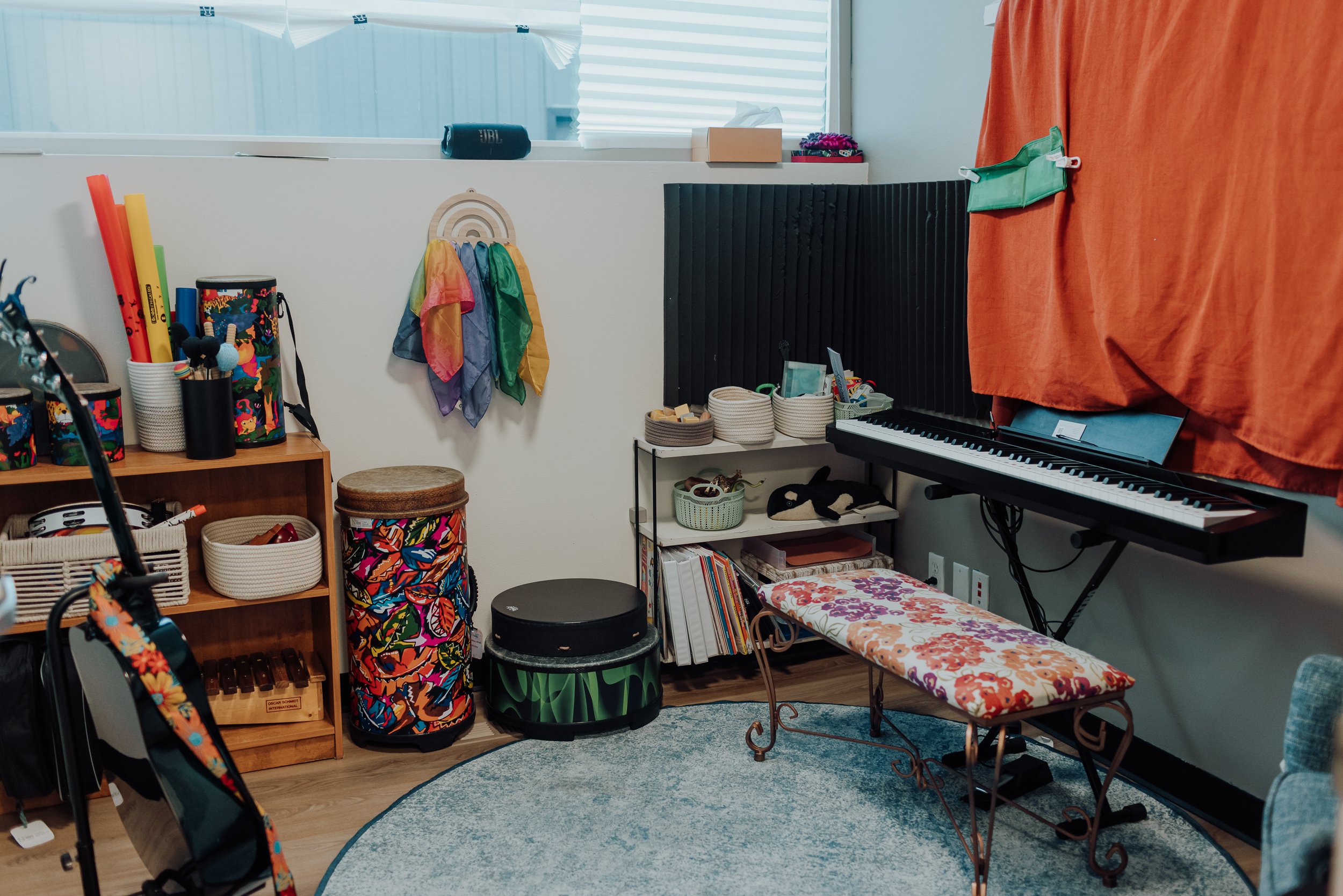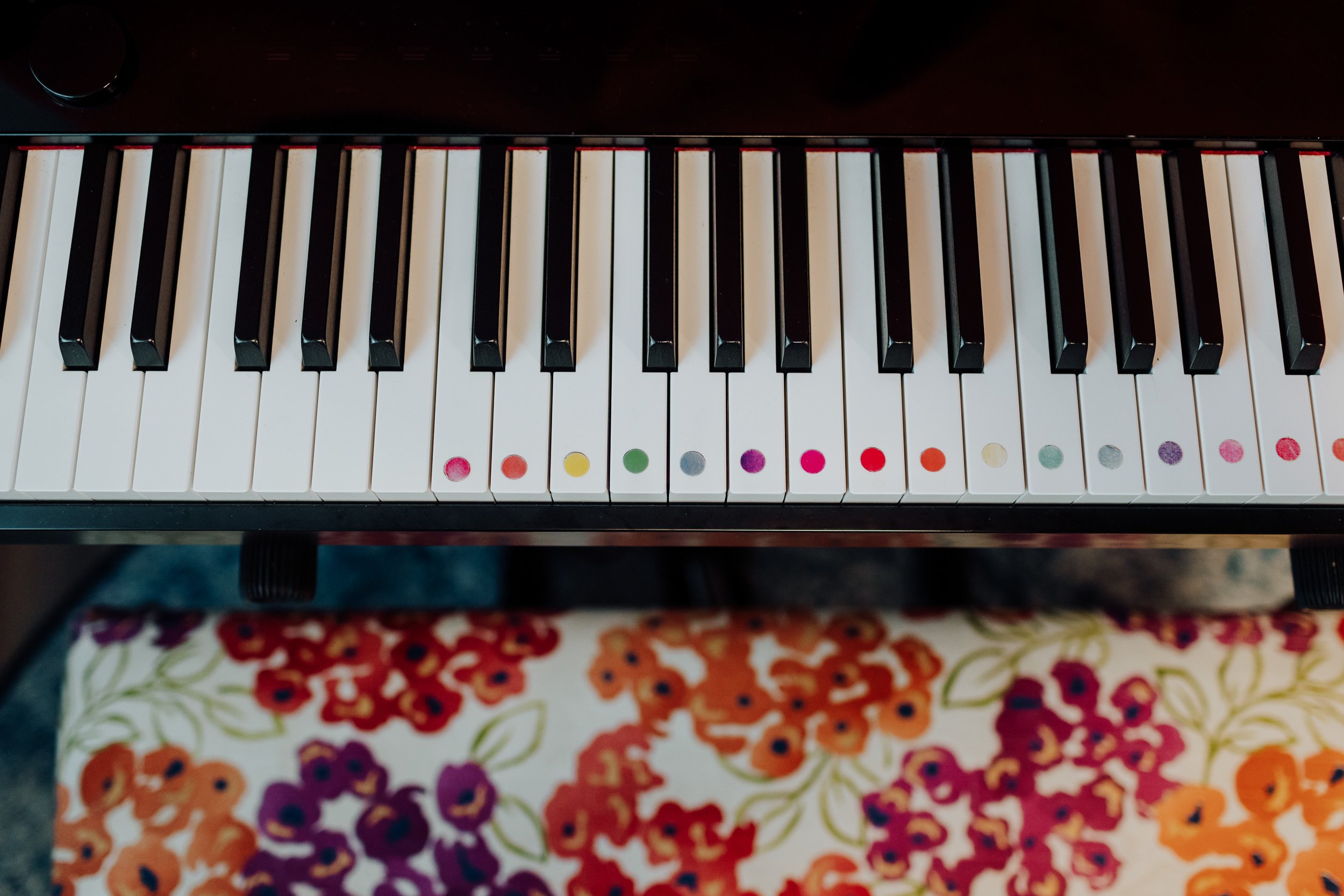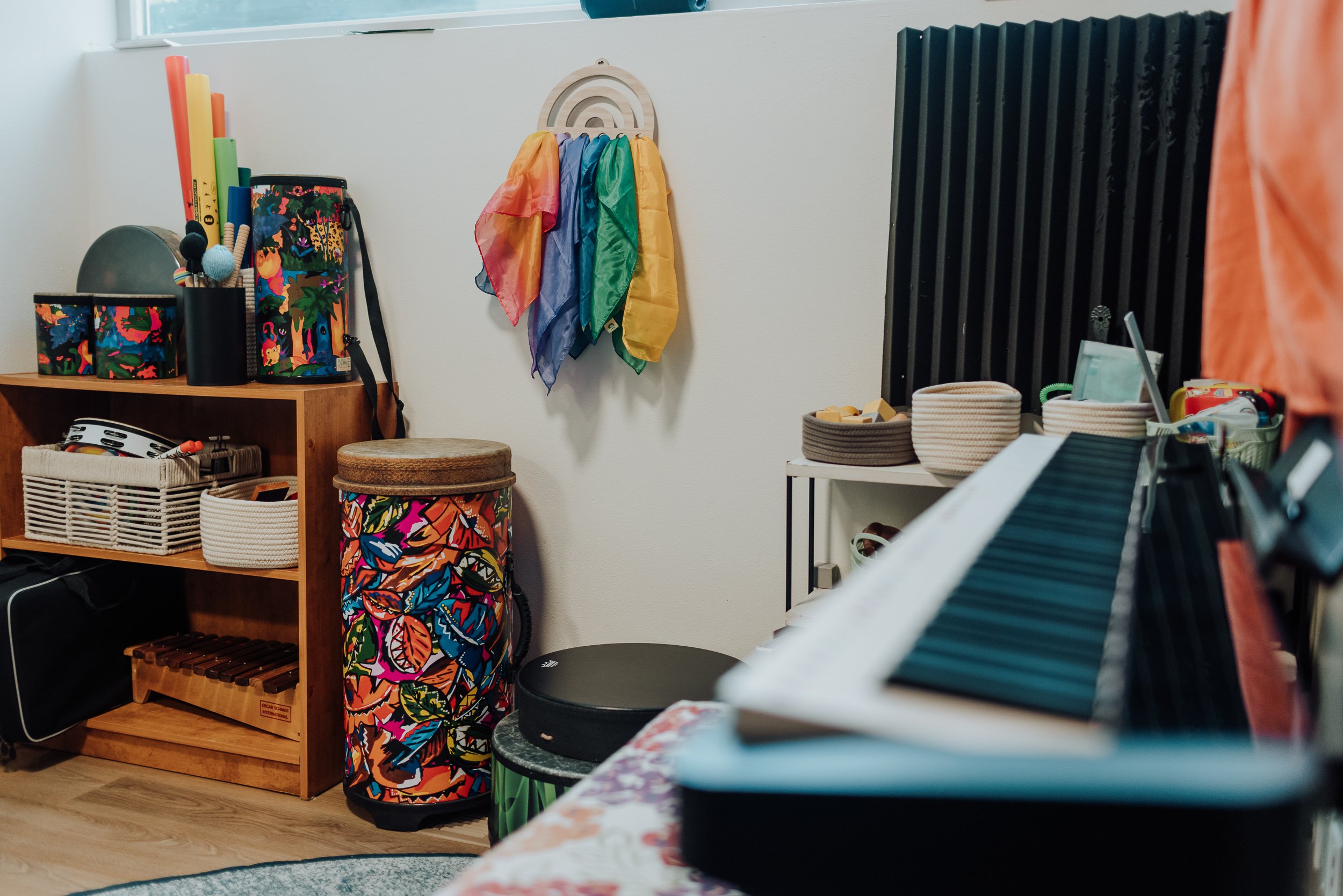We empower children and teens of all abilities to make music.
Imagine a modality that supports your child to be expressive and confident in who they are!
Music Therapy is the evidence-based use of music intervention to reach goals, musical or non-musical. These goals can include targeting fine and gross motor skills, promoting expressive language, emotional regulation, self-advocacy, sensory engagement, and more. The participant in music therapy does not have to have any formal training in playing an instrument, just an interest or passion for music. Music therapy is facilitated by a board-certified music therapist, who holds at least a Bachelors in Music Therapy, completed a 6 month internship, and passed a board-certification exam. Reach out if you’d like to learn more, or scroll down for more resources and to get connected!
Music Therapy helps your child develop fine and gross motor skills, expressive language, emotional regulation, self-advocacy, and sensory engagement.
It’s designed to be deeply supportive of the needs of Autistic, Neurodivergent, or Highly Sensitive Children and Teens.





Who is is our Music Therapist?
Mikelia Wallace is a board-certified music therapist who has a passion for encouraging autistic and neurodivergent children and teens to explore music. Her internship and first position was with a private practice in Florida, solely focused on music therapy with children with developmental disabilities and mental health concerns. Mikelia joined The Real Work to continue providing these specialized services to neurodivergent kids and tweens.
Book a Free Inquiry
Music therapy can help children meet their goals, engage, relate, and express in ways that feel good and make sense based on their developmental and individual differences.
More About Music Therapy
The American Music Therapy Association states that “Music Therapy is the clinical & evidence-based use of music interventions to accomplish individualized goals within a therapeutic relationship by a credentialed professional who has completed an approved music therapy program.”
Music therapy interventions can address a variety of healthcare & educational goals:
Promote Wellness
Manage Stress
Alleviate Pain
Express Feelings
Enhance Memory
Improve Communication
Promote Physical Rehabilitation
and more
Music Therapy and Autism Spectrum.
How do you use Music Therapy with Children and Teens with an Autism Diagnosis?
“Music therapy interventions focus on enhancing social, communicative, motor/sensory, emotional, and academic/cognitive functioning, or music skills in individuals with ASD. Music therapy services are based on each client’s individual abilities, noting preferences, needs, the family’s values, beliefs, and priorities. Music therapists work in partnership with clients, families, and teams. The music therapy assessment process is designed to gain an understanding of the individual’s current level of functioning while engaging in a variety of intentional and developmentally sound music experiences. The music therapy intervention plan is based on the assessment outcomes. It integrates a variety of ASD-specific evidence-based strategies (e.g., prompting, reinforcement, picture schedule) and music therapy techniques (e.g., singing/ vocalization, instrument play, movement/ dance, musical improvisation, songwriting/ composition, listening to music, or computer-based music activities). These strategies and techniques support clients in practicing identified and targeted skills. Music therapy sessions provide familiarity, consistency, structure, and predictability – characteristics that support the learning style of individuals with ASD. Music therapists document clients’ responses and conduct ongoing evaluation of progress towards the achievement of goals while making recommendations for generalization and future intervention options. These measures and suggestions may assist the individual with ASD, family, and team to appreciate success while empowering clients to maximize their functioning in all aspects of their lives.”
Does Research Support Music Therapy as a Resource for Children and Teens with an Autism Diagnosis?
According to The American Music Therapy Association, “Over the past seven decades numerous anecdotal case studies, narrative reviews (e.g., Reschke-Hernández, 2011) and systemic reviews (e.g., Geretsegger, Elefant, Mössler, & Gold, 2014) describe the benefits of music therapy for individuals with ASD Currently, music therapy is identified as an emerging intervention by the National Autism Center (2015).The following research-based examples demonstrate the value of music therapy for those with ASD: Music therapy interventions are informed by research evidence and incorporate many of the identified ASD-specific evidence-based practices in each session (Kern, Rivera, Chandler, & Humpal, 2013). Music therapy services for young children with ASD are very effective for improving communication, interpersonal skills, personal responsibility, and play (Whipple, 2012). Music therapy interventions may elicit joint attention (Kalas, 2012); enhance auditory processing, other sensory-motor, perceptual/motor, or gross/fine motor skills (LaGasse & Hardy, 2013); and identify and appropriately express emotions (Katagiri, 2009). Music therapy interventions based on familycentered practice may increase social engagement in the home environment and community (Thompson, McFerran, & Gold, 2013) Music therapy interventions using musically adapted social stories may modify target behavior and teach new skills (Brownell, 2002).
“Music therapy can make the difference between withdrawal and awareness, between isolation and interaction, between chronic pain and comfort -- between demoralization and dignity.”
— - Barbara Crowe (Past President of National Association for Music Therapy).


